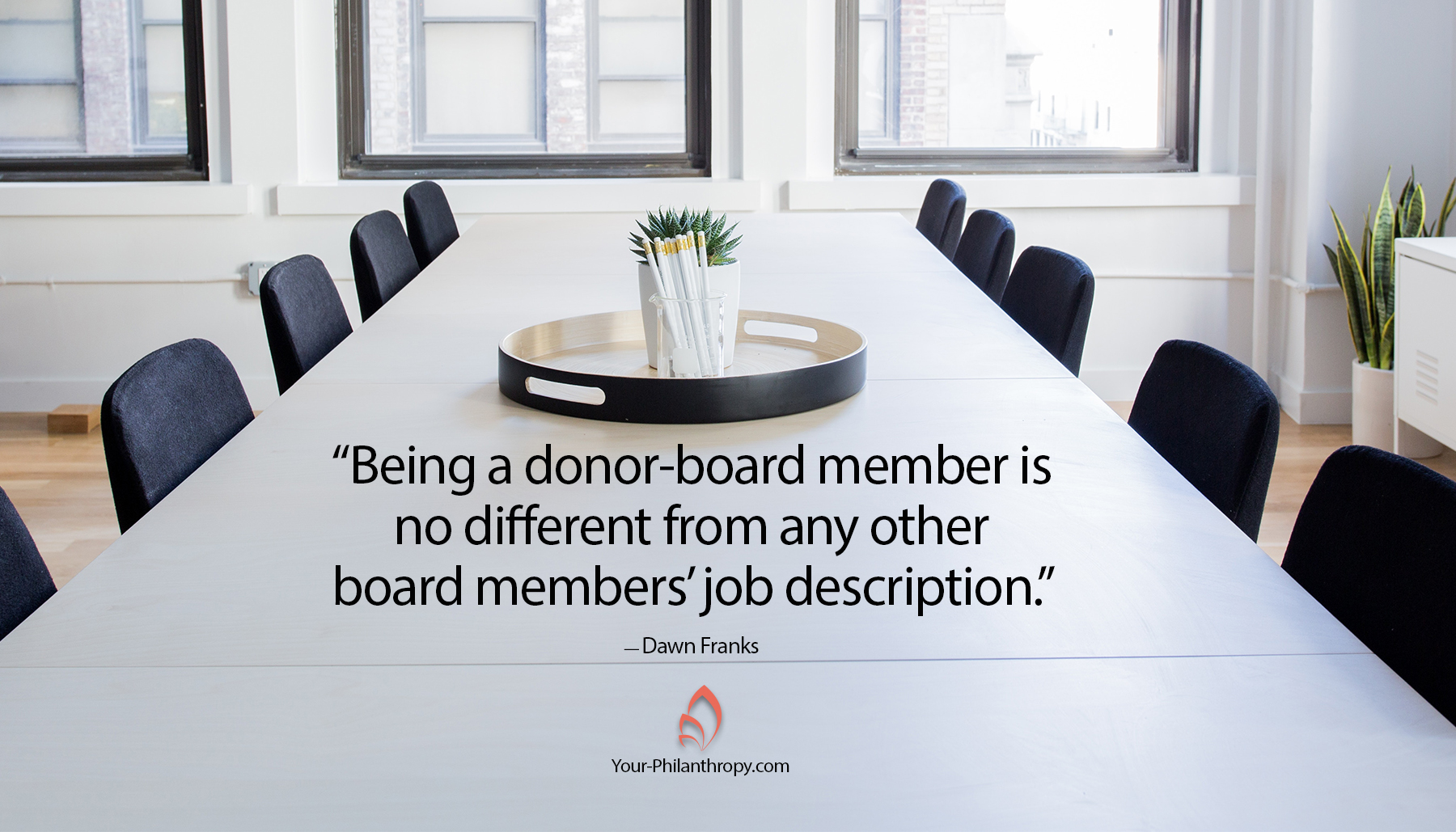Start any new endeavor, learn a new skill, or explore an unknown subject and you should have more questions than answers. The more interested you are in learning about that one thing, the more questions you will have.
So, when a donor who had recently made a significant gift to an organization asked me if she should accept an invitation to serve on their board, I stopped to search for the best answer.
First, I had a question, actually two. What skill set or influence will you bring to the board that will help them further their mission? While she was thinking about her answer, I fired off another question. Did they tell you why they wanted you to serve on the board or what skill they hoped you would bring?
Her answer, another question, provided a hint to the complexity of being a highly engaged and interested donor. “If I want to learn more about them and understand their funding needs isn’t serving on the board the best way to gather information? And why do I need to provide a skill set?”
A Donor-Board Member Job Description
Guess what? Being a donor-board member is no different from any other board members’ job description. Joining the board of directors comes with actual governance and legal responsibilities. The Council of Nonprofits describes a board member’s responsibility as “the fiduciaries who steer the organization toward a sustainable future by adopting sound, ethical, and legal governance and financial management policies, as well as by making sure the nonprofit has adequate resources to advance its mission.”
That’s a complex way of saying they need to focus on the big stuff, the foresight to look and guide into the future, loyalty and support of the mission, and a willingness to work to ensure the organization’s financial stability.
That stability comes from many donors. No one donor should make up a large part of an organization’s annual operating budget. Nonprofit organizations are public charities receiving tax-exempt status in exchange for serving the public good and being supported by the wider public.
In fact, the IRS does not like to see one donor represent more than one-third of a nonprofit organization’s operating budget.
Ask Questions and Brand Your Giving
Let’s get back to our donor who wants to learn more about the organization and improve her giving decisions. Serving on the board is one way, but comes with a great deal more work and responsibility. There is nothing wrong with a donor serving on the board as long as they embrace the job and all that’s expected.
Your questions deserve answers, but they are merely an indicator of your curiosity. What you do with the answers is how you put your personal brand on giving.
Three Ways to Learn More about an Organization
- Ask questions and listen to the answers – most valuable
- Watch for free information
- Read their newsletter
Newsletter Tips
Reading the newsletter is the easiest on the list. Make a small donation and get the newsletter. Look through it quickly to see what catches your eye. Watch for key information.
- Client stories help you understand impact
- Graphical depiction of their financials – charts and financial reports
- List of donors
- List of board members
- Plans for the future
Without spending a great deal of time, several times a year, you can learn a lot about an organization. If none of those items are there over time, you’ve still learned something. What’s missing and why?
Free Information
Keep your eyes open for free information in the media, local newspapers and magazines, advertisements, billboards, social media, and more. It can come from anywhere. If the source is reputable, you’ve added to your information trove.
Best Information
I consider direct questions and taking time to listen the best way to gather information and make better decisions. Ask volunteers and board members about the organization. Pick up the phone and call the executive director. Ask fellow donors why they support the organization.
Two worst answers you can hear
- It’s a great organization; I like the executive director or the president.
- I go to board meetings, but I really can’t tell you much about what they do.
Vague, general answers will not help you make better giving decisions.
How do you get answers to your questions? What sources do you trust?


Super good advice for board members and potential board members.